Mar
29
2010
or The Self-Maledictory Oath
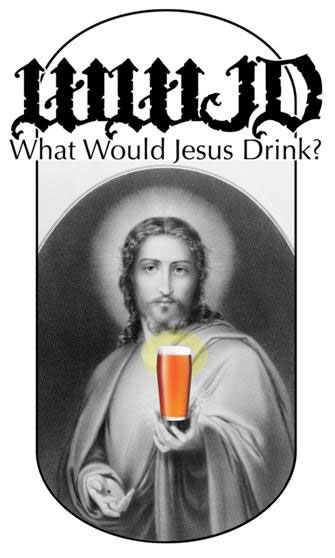
For thus says the LORD God of Israel to me: “Take this wine cup of fury from My hand, and cause all the nations, to whom I send you, to drink it. “And they will drink and stagger and go mad because of the sword that I will send among them.” Then I took the cup from the LORD’s hand, and made all the nations drink, to whom the LORD had sent me…” (Jeremiah 25:15-17)
The content of this post has been revised and included in Bible Matrix II: The Covenant Key.
__________________________________________________________
[1] See Sacramental Doses of Death.
[2] This is the execution of a Covenant curse, so those who fought against Jerusalem were people under the Covenant.
[3]Contrary to popular opinion, I believe that the divided animals substitute for the Canaanites rather than for Abraham, but the birds do substitute for Abraham. The birds are the head of the Covenant, and He is never crushed. Only the serpent’s head is crushed. This also relates to the linen left in Christ’s tomb. The Jew-Gentile body was divided in Abraham and reunited in Christ. See Pass-over and Pass-Through.
[4] See Three Babylons.
[5] This also relates to the disappearance of the pure Covenant-head, the Ark of the Covenant. See The Lost Ark.
Comments Off | tags: Abraham, Ark of the Covenant, Babylon, Covenant Theology, Ezekiel's Temple, Gethsemane, Jeremiah, Numbers 5 | posted in Biblical Theology, The Restoration Era
Feb
19
2010
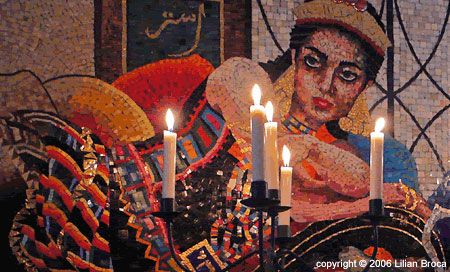
or Smells Like Holy Spirit
A friend recently gave me a unique gift. With some difficulty and great expense, he sourced the ingredients for the anointing oil of the Aaronic priesthood and I was the grateful recipient of a small, blue vial.
The scent of the oil is intoxicating. You breathe it in and in some strange way you can “taste” it as it goes down. It is extremely complex and yet a single fragrance. Continue reading
Comments Off | tags: Ark of the Covenant, Atonement, Covenant Theology, Creation Week, David, Esther, Ezekiel, Genesis, Greater Eve, Incense Altar, James Jordan, Peter Leithart, Resurrection, Saul, Tabernacle | posted in Biblical Theology, Quotes, The Last Days, The Restoration Era
Nov
30
2009
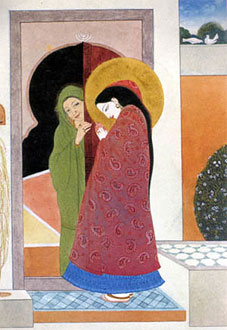 .
.
Victor left some comments on Mother of Invention which I think deserve a new post:
Hello Mike!
I’m a student of typology – endlessly fascinating endeavor! – and am not and never have been Catholic myself. I would like to comment on your point about the Ark of the Covenant. (I just noticed that MS Word wants to capitalize “ark of the covenant”!)
I understand that you recognize the many parallels between the “Visitation” account in Luke 1 and the Ark’s journey narrated in 2 Samuel 6. The cumulative effect of the many commonalities between them makes the typological connection impossible to be denied. I can’t help but recognize its validity.
OTOH, I understand that you’re trying to say that in the specific context of Luke 1 the Ark should be interpreted as an image of Christ, not of Mary.
I can see a link between the person of Christ and the Ark, but, in the precise context of Luke 1, it seems inescapable to me that the comparison is made between the Ark and the person of Mary the mother of Jesus. That’s the whole gist of the correlation between the stories of 2 Samuel and Luke.
Continue reading
2 comments | tags: Ark of the Covenant, Leviticus, Luke, Mary, Roman Catholicism, Tabernacle | posted in Biblical Theology
Nov
16
2009
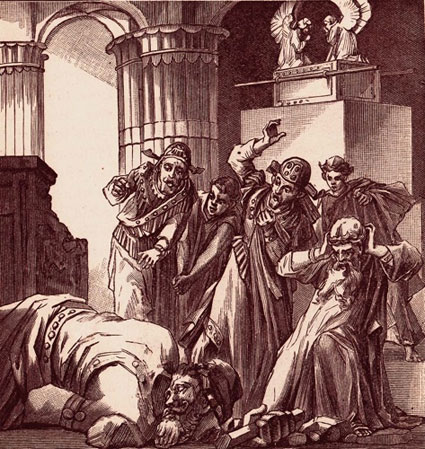
“The LORD will strike you with the boils of Egypt, with tumors, with the scab, and with the itch, from which you cannot be healed.” Deuteronomy 28:27
The Bible matrix pattern brings out some interesting parallels. Step 5 is about a military multitude in unity after being tested under the Law of God. It is Deuteronomy. It is Trumpets. It is the swarms of fish and birds on Day 5. It is the step of plagues and plunder. It is the step where Jesus tells His disciples they will now need both swords and moneybags.
Continue reading
Comments Off | tags: Ark of the Covenant, Bible Matrix, Egypt, Eli, Herod, Sodom | posted in Biblical Theology, The Last Days
Jul
27
2009
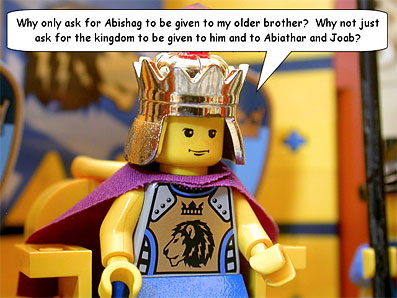
Eli’s corrupt priesthood came to an end when the Ark was taken by the Philistines. Saul’s corrupt kingdom came to a full end when the Ark returned (hence Michal’s barrenness). The last of Eli’s priesthood (Abiathar) was exiled when Solomon’s government began. Solomon’s kingdom was a new firmament (1 Kings 10:19). Isaiah, however, saw it being rolled up like a scroll (Is. 34:4).
Continue reading
Comments Off | tags: Abiathar, AD70, Ark of the Covenant, Caiaphas, Cyrus, David, Eli, Feasts, High Priest, Literary Structure, Saul, Solomon, Systematic typology, Zechariah | posted in Biblical Theology, The Last Days
Jul
15
2009
or Limited Redemption
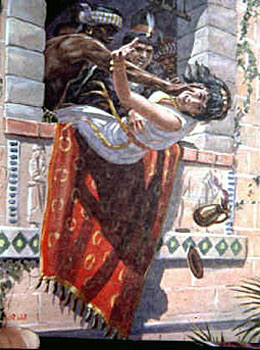
“For if we sin wilfully after that we have received the knowledge of the truth, there remaineth no more sacrifice for sins” - Hebrews 10:26
NOTE: THIS POST HAS BEEN REMIXED AND INCLUDED IN GOD’S KITCHEN.
Did Christ die for all? If Jesus’ blood was not shed for all, how can it possibly be a sin to “trample it underfoot” as the unbelieving Jews did? (Hebrews 10:29)
Elijah set up a 12 stone altar as a substitute for Israel. The sacrifice ascended to the Lord (goat #1) and the prophets were slain (goat #2). Thus, the Baal worship was atoned for.
But Jezebel trampled this sacrifice underfoot, and continued in sin. In retaliation, she slew the prophets that Obadiah had hidden. Consequently she was trampled underfoot. (2 Kings 9:33).
The New Testament history, including the Revelation, follows this pattern. Jesus set up a new 12 apostle priesthood and Israel slew Him and them. Consequently, Israel was slain, as Jezebel. That is the context of the Hebrews passage, and the meaning of the harlot of Babylon.
Continue reading
Comments Off | tags: Ark of the Covenant, Atonement, Calvinism, High Priest, James Jordan, Jezebel, Postmillennialism, Revelation | posted in Biblical Theology, The Last Days
May
20
2009
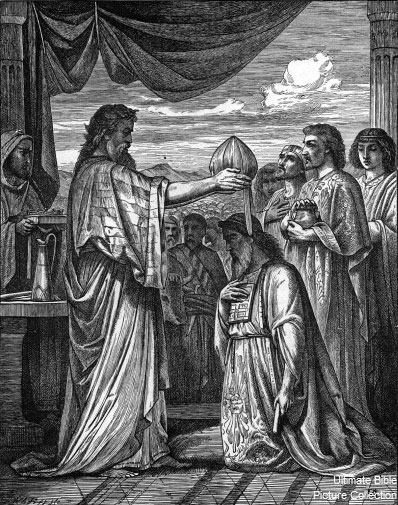
Leaving Wilderness Behind
In Through New Eyes, James Jordan notes that the wilderness was Havilah, the place mentioned in Genesis 2 that was rich in raw materials. Israel stripped Egypt of her gold, then plundered the desolate places of hidden wealth. She came out of the desert with a High Priest clothed in gems, and a new generation of soldiers born of God’s threshing floor.
The manna began to fall just after the Hebrews’ victory over Pharaoh. As with Jacob, the Lord was faithful to provide for His chosen one. But perhaps, in covering the ground, there is also the idea of a firmament (this might sound strange to some readers, but I have found the concept is a frequent one). The wilderness is the place of the humble bread of priesthood, displayed in obedience to God. It was the next generation that would drink the wine of Canaan after obedience under Joshua.
A Memorial
The Lord commanded that some manna be put into the Ark as a memorial. Symbolising manna, the white stone is a memorial of faithful priesthood. Joshua’s crossing of the Jordan was memorialised by large, engraved, white stones.
Continue reading
Comments Off | tags: Ark of the Covenant, Atonement, bdellium, Cain, Crucifixion, Ezekiel, Haman, Havilah, Herod, High Priest, James Jordan, Table of Showbread, Talmud, Urim and Thummim, White stone, Zechariah | posted in Biblical Theology, The Last Days
Apr
25
2009
For those reading my book, I need to correct a paragraph on p. 289. Although the newly expanded territory measured out the pattern of the Ark, the Ark was in heaven. So restored Jerusalem became the four-cornered Altar of Incense beneath it (the Holy Place/City) and the Empire became the Bronze Altar beneath that.
“The Lord had used the exile to expand His territory. He had scattered His people as the four winds. Jerusalem was now the Temple (the holy city), a rebuilt Altar of Incense. The Empire was now the Land, the four-cornered bronze Altar beneath it.”
This all of course is a type of the New Jerusalem ruling an even greater world in this current age. I’ve also added a diagram.
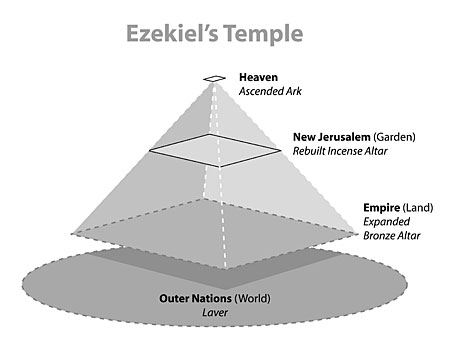
“God claimed the Babylonian Empire as His territory, and began converting Nebuchadnezzar’s new World (Sea) into Land. The kings had failed to continue bringing the riches of the Gentiles under the Covenant, so the Lord expanded the Covenant promise. The expansion would cost Israel her life.”
Comments Off | tags: Ark of the Covenant, Ezekiel's Temple, Incense Altar | posted in The Restoration Era, Totus Christus
Apr
16
2009
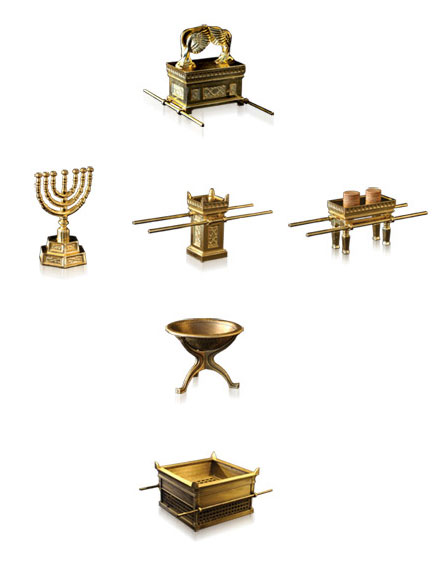
The Tabernacle was not only a “portable Sinai”, the mountain of God laid out across the ground, it was the cruciform Man. We see Jesus, with the Throne of God on His shoulders (the Ark – government), bread and wine in His left hand (the Table - servanthood), the ‘seven stars’ of the Lampstand in His right (dominion), and His feet on the crystal sea (the Laver – resurrection). And He is lifted up “in the air” between heaven and earth (the Altar-Land) as the Mediator Who unites God and man.
As the Ark (Moses), with arms outstretched (Bread – Aaron, and Ruling Lights – Hur), He is the prophet, priest and king Who defeated Greater Amalek at Sinai.
Comments Off | tags: Amalek, Ark of the Covenant, Lamps, Laver, Moses, Revelation, Sinai, Tabernacle, Table of Showbread | posted in Biblical Theology
Apr
15
2009
Witness or Worship?
“…the political task of Christians is to be the church rather than to transform the world”–Stanley Hauerwas, Resident Aliens.
This presents a false dichotomy. When Gideon and David were faithful, God went ahead of them and defeated their enemies. Would it be fair to assume that Hauerwas is just saying that political activism is getting the cart before the horse? If so, then I agree with him. When the church is faithful, the blessings of God transform the world around her.
Continue reading
Comments Off | tags: Aaron, Ark of the Covenant, David, Ezekiel, Gideon, Holy Place, James Jordan, Manna, Politics, Table of Showbread | posted in Biblical Theology, Ethics


































